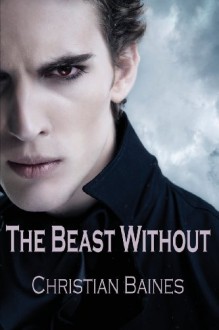 ~ Review by Ulysses
~ Review by UlyssesPretty damn good for a first novel.
I love to read explorations of the vampire genre, and in The Beast Without Christian Baines not only takes us to his native Australia, but presents us with Reylan, a two-hundred year old vampire in whom various pieces of paranormal lore merge and mix into an interesting modern product. Reylan looks at the world with a jaded “been there done that” attitude. He’s off-putting at first, comfortable behind this arrogant façade, sneering at a world of puny mortals in which he is the top of the food chain, sure of his own power.
This was an uncomfortable read for me, which is less a criticism than a comment. There is sexual fluidity and moral ambiguity, both of which make me squidgy; yet Baines handles these complexities with clarity and thought-provoking nuance. As in the world of Anne Rice’s vampires (the mother of the modern vampire) Reylan acknowledges the inevitability of a vampire killing, but only by accident, only as a weakness, a lack of control. He seems heartless and cold, and yet demonstrates emotional depths and a very strong moral compass. He is a fascinating character, not unlike Rice’s iconic Lestat, but somehow more appealing to me, more human...
Read more at Prism Book Alliance

 Log in with Facebook
Log in with Facebook 






